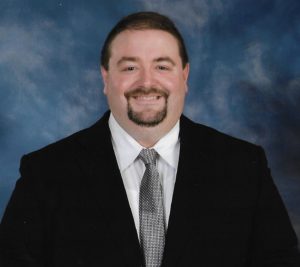By: Brian Chilton | May 23, 2017
Last week, Jason Kline and I co-authored an article on the three positions on prayer: the pantheist view (that individuals can coerce and force God to speak); the deist view (the view that God never speaks); and the theist view (that God speaks to his people according to his will). When we consider God’s voice, it is imperative that we understand the working of the Holy Spirit. The Holy Spirit is the third person of the Triune Godhead, enjoined with God the Father (Yahweh) and God the Son (Jesus). So, what exactly does the Holy Spirit do as it pertains to prayer?
- The Holy Spirit Reveals the Word (Matt. 22:43; Acts 1:16; 4:25; 28:25; 1 Peter 1:11; 2 Peter 1:21). The Bible teaches that the Holy Spirit communicates with humanity by revealing God’s word. The writers of Scripture were inspired in ways that we are not today. That is to say, they received the infallible, inerrant word of God. Jesus noted, “How is it then that David, inspired by the Spirit, calls him ‘Lord’” (Matt. 22:43)?[1] Again in Acts 1:16, Peter said, “Brothers and sisters, it was necessary that the Scripture be fulfilled that the Holy Spirit through the mouth of David foretold about Judas” (Acts 1:16). Peter also writes in his letters that “They inquired into what time or what circumstances the Spirit of Christ within them was indicating when he testified in advance to the sufferings of Christ and the glories that would follow” (1 Peter 1:11) and that “No prophecy of Scripture comes from the prophet’s own interpretation, because no prophecy ever came by the will of man; instead, men spoke from God as they were carried along by the Holy Spirit” (2 Peter 1:21). While the prophets and writers of Scriptures were guided by the Holy Spirit to document the written word of God, the modern Christian is guided into understanding God’s revelation which is a gift and communicative aspect of the same Holy Spirit.
- The Holy Spirit Manifests God’s Presence (John 16:14; 15:26; Acts 5:32; Judg. 14:6). The Holy Spirit also communes with God’s people in ways that manifests God’s presence. Jesus notes that the Holy Spirit “will glorify me, because he will take from what is mine and declare it to you” (John 16:14). This Holy Spirit will testify about Jesus (John 15:26). The Spirit is also witnessed by the people of God (Acts 5:32) and provides might that no one else can provide (see Judges 14:6).
- The Holy Spirit Directs His People (Isa. 30:1; Mark 1:12; Acts 8:29; Acts 10:19-20). The Holy Spirit provides direction for his people. Isaiah writes, “Woe to the rebellious children! This is the LORD’s declaration. They carry out a plan, but not mine; they make an alliance, but against my will, piling sin on top of sin” (Isaiah 30:1). The Lord is addressing a people who sought help from a foreign enemy nation rather than him. Wayne Grudem suggests that “the people had been deciding on the basis of their own wisdom and common sense rather than seeking the guidance of God’s Holy Spirit.”[2] In Mark 1:12, Acts 8:29, and Acts 10:19-20, one can find evidence of God’s direction and leadership upon Jesus and the apostles. The same direction is given to modern saints, as well.
- The Holy Spirit Provides Assurance (Romans 8:16; 1 John 3:24). The Holy Spirit provides assurance that one is saved. This can be through the fruits of the Spirit (Galatians 5:22-23). But also, the Holy Spirit provides assurance that one has been saved. Paul notes that “the Spirit himself testifies together with our spirit that we are God’s children, and if children, also heirs” (Romans 8:16). John also acknowledges that “the one who keeps his commands remains in him, and he in him. And the way we know that he remains in us is form the Spirit he has given us” (1 John 3:24). God’s Spirit assures us of our salvation.
- The Holy Spirit Teaches His People (John 14:26; 16:13). Jesus told the disciples that “the Counselor, the Holy Spirit, whom the Father will send in my name, will teach you all things and remind you of everything that I have told you” (John 14:26). The Spirit is assured to “guide you into all truth. For he will not speak on his own but he will speak whatever he hears. He will also declare to you what is to come” (John 16:13).
- The Holy Spirit Convicts the Wrongdoer (John 14:8). The Holy Spirit convicts individuals of sin. Jesus also notes that the Holy Spirit would “convict the world about sin, righteousness, and judgment” (John 14:8). Within the life of the believer, the Holy Spirit will provide conviction where it is necessary. The Spirit will desire to bring a person into repentance while sanctifying the believer into the image of Christ, which is an ongoing work. So, the next time you feel a bit uncomfortable with something that you have done and you can’t shake off the feeling of guilt, turn to the Lord and allow him to show you what areas of your life that need to be improved. By doing so, the Holy Spirit is helping you and not hurting you.
- The Holy Spirit Empowers God’s Workers (Joel 2:28-29). The prophet Joel saw a day when the people of God would be filled with the Holy Spirit. This would occur during the era of the new covenant. Joel prophesies for God, saying, “After this I will pour out my Spirit on all humanity; then your sons and your daughters will prophesy, your old men will have dreams, and your young men will see visions. I will even pour out my Spirit on the male and female servants in those days” (Joel 2:28-29). The Holy Spirit empowers his people to do the work of God, providing spiritual gifts to those whom the Spirit chooses.
Conclusion
The person and work of the Holy Spirit illustrates well that God is actively involved in his creation. The deist view of God and of prayer simply does not hold. The Spirit of God moves, directs, illuminates, teaches, convicts, and guides people. So, to claim that God no longer speaks with his people is to greatly misunderstand the person and work of the Holy Spirit. In like manner, to think that one can control the Holy Spirit, as the pantheist view seeks, is also greatly in error. The believer is assured that he or she is not left alone as orphans. Rather, the Holy Spirit is an ever-present friend and help. I would not be who I am and would not be where I am if it were not for the power and work of the Holy Spirit. Praise God the Father! Praise God the Son! Praise God the Holy Spirit!
Notes
[1] Unless otherwise noted, all quoted Scripture comes from the Christian Standard Bible (Nashville: Holman, 2017).
[2] Wayne Grudem, Systematic Theology: An Introduction to Biblical Doctrine (Grand Rapids: Zondervan, 1994), 642.
About the Author
 Brian Chilton is the founder of BellatorChristi.com and is the host of The Bellator Christi Podcast. He received his Master of Divinity in Theology from Liberty University (with high distinction); his Bachelor of Science in Religious Studies and Philosophy from Gardner-Webb University (with honors); and received certification in Christian Apologetics from Biola University. He hopes to enter doctoral studies soon in the realm of theology and/or biblical studies. Brian is full member of the International Society of Christian Apologetics and the Christian Apologetics Alliance. Brian has been in the ministry for over 14 years and serves as the pastor of Huntsville Baptist Church in Yadkinville, North Carolina.
Brian Chilton is the founder of BellatorChristi.com and is the host of The Bellator Christi Podcast. He received his Master of Divinity in Theology from Liberty University (with high distinction); his Bachelor of Science in Religious Studies and Philosophy from Gardner-Webb University (with honors); and received certification in Christian Apologetics from Biola University. He hopes to enter doctoral studies soon in the realm of theology and/or biblical studies. Brian is full member of the International Society of Christian Apologetics and the Christian Apologetics Alliance. Brian has been in the ministry for over 14 years and serves as the pastor of Huntsville Baptist Church in Yadkinville, North Carolina.
© 2017. BellatorChristi.com.






[…] noted, “How is it then that David, inspired by the Spirit, calls him ‘Lord’” (Matt. 22:43)?[1] Again in Acts 1:16, Peter said, “Brothers and sisters, it was necessary that the Scripture be […]